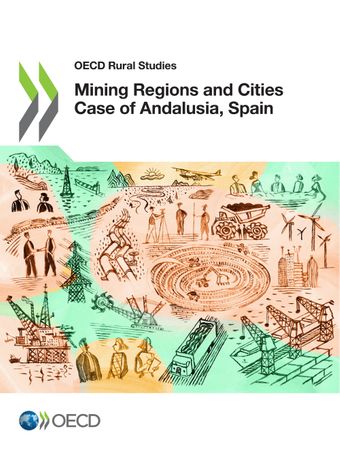OECD presents a report with the participation of Yancy Vaillant
published on 15.06.21
On June 11, the presentation of the OECD report Mining Regions and Cities Case of Andalusia, Spain took place, a study with the participation of Yancy Vaillant, professor at TBS in Barcelona.

Together with the OECD team, Vaillant has been working for a year on the study, which is part of a special OECD project on “Mining Regions and Cities.” The project is being carried out by the ‘Centre for Entrepreneurship, SMEs, Cities, and Regions’, with which Yancy Vaillant has been collaborating for more than 15 years. “My collaboration takes the form of an external expert on territorial development policy issues and more specifically on entrepreneurship and innovation systems,” explains the professor.
What does the report provide?
The mining sector is key for economic development and the well-being of countries and regions. Unlike other industries, mining is geographically concentrated in the areas where the deposits are located, so it creates links with local communities and the environment. Considering the scarcity of raw materials, this study can be of great help. Another reason why this study is relevant is the importance for mining regions to have strategies in place to manage the commodity cycle.
In addition, the mining and extractive industries bring benefits to the different regions, as they are a source of employment and investment. For all these reasons, mining regions are key to contributing to the Sustainable Development Goals, specifically to the SDGs of climate change, responsible consumption, decent work and economic growth, and reducing inequalities.
Vaillant explains that the report represents an extraordinary opportunity to develop an ecosystem of advanced and specialized services in the eco-environmental and digital transition of the industry. Especially, in the case of Andalusia, due to its mineral wealth and especially the expertise that the mining sector is developing in the region to meet the stringent environmental and digital monitoring/control/optimization requirements imposed by the European Commission. “That differentiating competence can not only serve to ensure the competitiveness of the Andalusian mining sector but is a valuable and exportable source of knowledge to mining regions around the world,” says Yancy Vaillant. This competitive advantage can also flow beyond the value chain of the mining sector in Andalusia and become a driving source of digital and environmental transition of the Andalusian productive fabric.
“That differentiating competence can not only serve to ensure the competitiveness of the Andalusian mining sector but is a valuable and exportable source of knowledge to mining regions around the world,”
Yancy Vaillant
OECD

The OECD is an international policy consulting institution between different member countries. Its objective is to formulate policies that promote prosperity, equality, and well-being. Countries do not necessarily have to follow OECD recommendations, but Vaillant says they are usually carried out. “We usually have a monitoring report about 3-5 years after introducing our initial report to assess the pace and success of the implementation of the recommendations made.” So it is very likely that the suggestions made in this study will materialize into actual policies in the near future.
If you are interested, find out more about our Bachelor in Management, our Master in Management, or one of our MSc programs.
